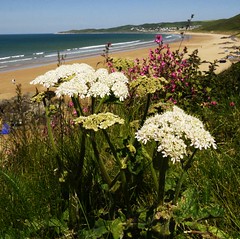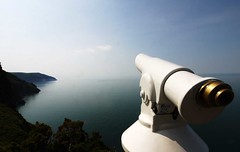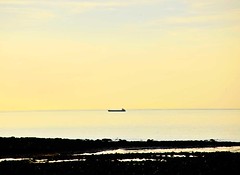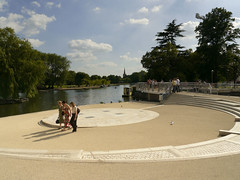
There's a difference in how photographers describe what they do. Some say they "take" a photograph, others claim to "make" one. I always used to think that the latter was pretentious nonsense, but now I'm not so sure.
I always used to claim that I "take" photographs, but when I actually think about what I do to an image then thats probably self-delusion on my part.
I see the problem starting because cameras don't take an accurate representation of what our eyes see. There is the three dimensions into two issue. The way our eyes can handle extremes of dynamic range and how a camera/lens combination can't. Then there's the issue of how lenses alter the image. Can a fish-eye lens ever be regarded as a valid representation of reality? Well only if you're a fish I guess.
The first thing we would all have to take on board is whether any manipulation of an image actually causes any harm. We all know of instances where altered images have been used as propaganda and have in many instances caused significant damage and even death. Also an image can be changed to imply guilt when there is none and vice versa. We've all seen paparazzi pictures. If someone is keen to present a "celebrity" in a bad light to justify a story, sticking a wide angle lens into their face and firing a flashgun should do the job nicely.
I always used to claim that I "take" photographs, but when I actually think about what I do to an image then thats probably self-delusion on my part.
I see the problem starting because cameras don't take an accurate representation of what our eyes see. There is the three dimensions into two issue. The way our eyes can handle extremes of dynamic range and how a camera/lens combination can't. Then there's the issue of how lenses alter the image. Can a fish-eye lens ever be regarded as a valid representation of reality? Well only if you're a fish I guess.
The first thing we would all have to take on board is whether any manipulation of an image actually causes any harm. We all know of instances where altered images have been used as propaganda and have in many instances caused significant damage and even death. Also an image can be changed to imply guilt when there is none and vice versa. We've all seen paparazzi pictures. If someone is keen to present a "celebrity" in a bad light to justify a story, sticking a wide angle lens into their face and firing a flashgun should do the job nicely.
So where does an "enhanced" landscape image fit into this.
As a long-time landscape photographer and supplier of images to travel markets I have been "guilty" of "improving" many of my images. Is this justified? Does it cause any harm? It could be argued that I'm misrepresenting a place, making it look better than it is. Someone may book a holiday on the basis of my picture and be disappointed when it doesn't turn out to be as "scenic" as anticipated. Likewise, even the most beautiful places in the world have certain angles which can "misrepresent" them. A picture of the rubbish dump at base camp on Mount Everest would give a significantly different impression of one of natures masterpieces.
There is obviously a difference between such images as these and the kind of obscenities produced by Joseph Goebbels for the Nazis, but is it just a matter of degree? As photographers we all know that what comes out of our cameras is only a representation of the reality we encountered first hand. How often have we said - "It looked better than that" and then proceeded to enlist photoshops assistance in making it look how it felt?
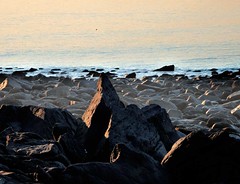
I have no answer or set of personal rules to any of this. My "editorial" choices are also influenced by the fact that this is how I make a living. The fact that my highly saturated landscape images shot in "great light" sell better than than those of a plainer nature has not gone unnoticed.
I have certainly changed my mind about how I create images. I most definitely "make" them. When I shot on transparency film there could be some justification in the claim that I was to a certain extent representing reality, but the use of different film stock, polarisers, grad and warm-up filters all contributed to my images not being as "pure" as they might have seemed. With digital I have no excuse whatsoever. When I open up a raw file on my screen, not all but many things are possible.
I guess if we all only ever used the in-camera jpgs untouched then we may be closer to the "truth" However what about "long-exposure" images of water? Are they photographic "fictions" in the same way as star trails, multiple exposures and montage, something you never see in reality and can only exist as photographs?
When I said I have no rules I actually do have one. When working on a landscape image I always ask myself "Could it have looked like this?" If the answer is yes then I will send the image out. If not I'll ease back on the alterations.
I'm not photographing for a political cause, I'm not a social documentary photographer looking to raise certain issues and there is no agenda in my work other than to say - "This place is great, you should see it." A great deal of my work is also "generic" created to be used in combination with other graphics, text etc. This is generally not specifically identified and the notion of misrepresentation is irrelevant.
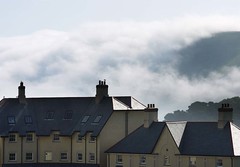
There can be a difference between "art" & "journalism". However do those who view our work realise the distinction between the two. Does someone who views one my travel pictures realise that it might be my "artistic impression" or do they think that its an 100% accurate representation? I have no idea.
Do I feel "guilty" about manipulating or enhancing? Well not really. Should I feel "guilty" about it? That I can't answer. Does doing what I do cause any problems? I would hope not, but I cannot be sure. It would be great if I could put some sort of "health warning" underneath each image - saying something like "This image was created by the photographer, it is a representation of, not a true record of the place depicted" But since thats not possible I just have to hope that my "pretty pictures" are viewed in the spirit in which they were created. Whether that happens is anyones guess.
Words - D
Images - D & A
